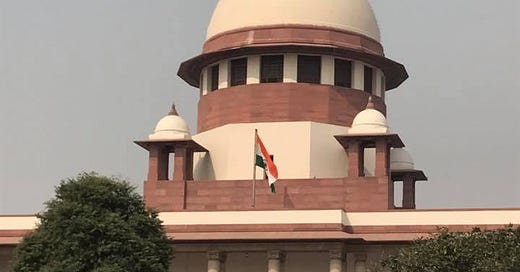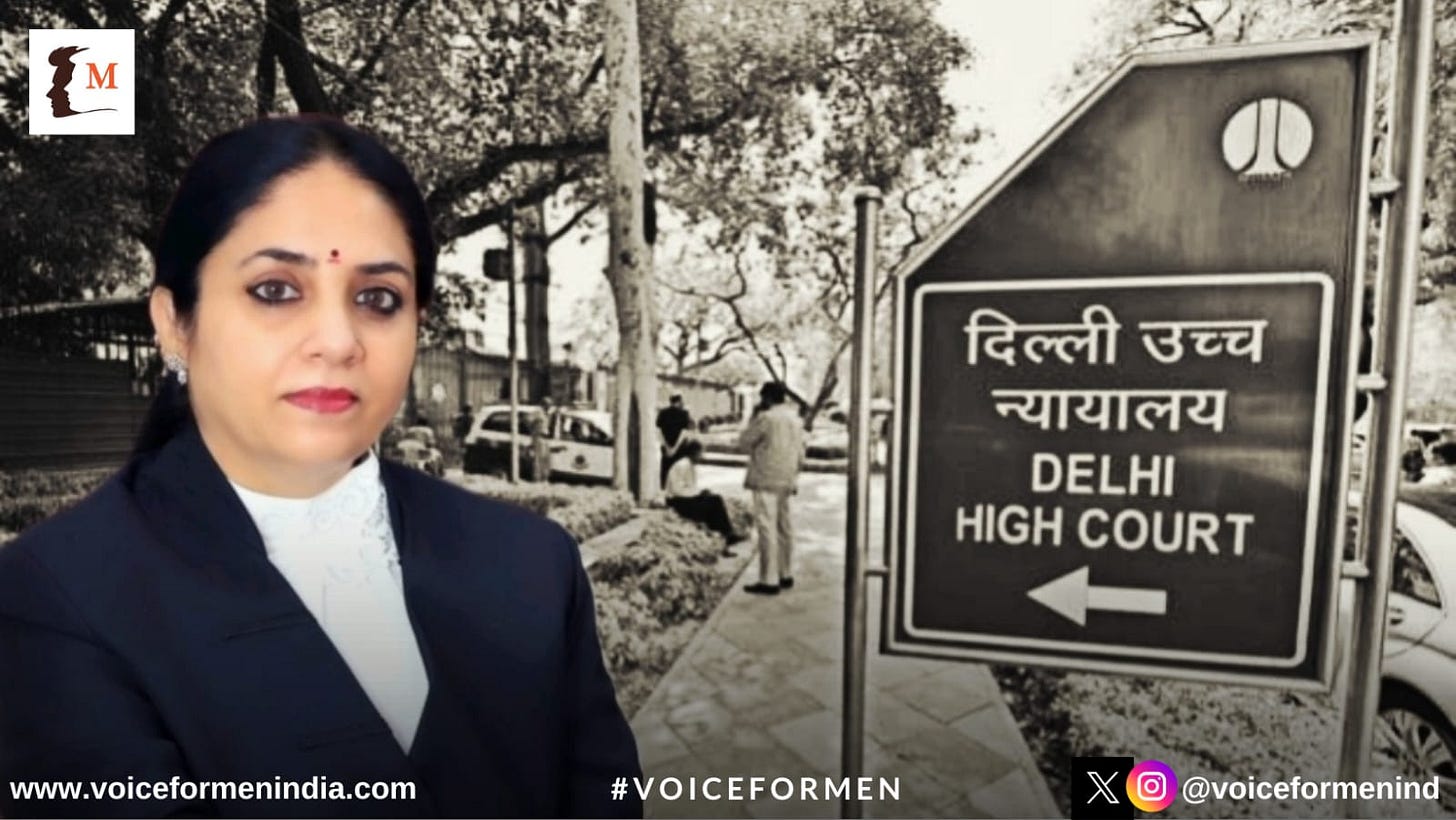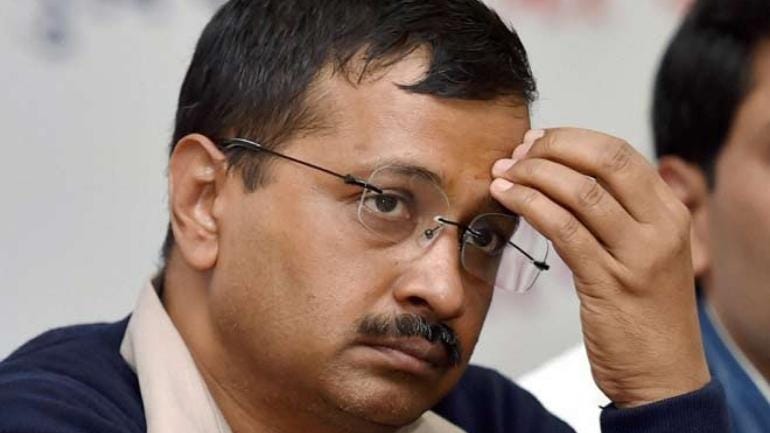Kejriwal in Supreme Court Today: Issues, Possible Outcomes, and Implications
Supreme Court Bench comprising Justices Sanjiv Khanna and Dipankar Datta set to hear Kejriwal's Special Leave Petition, impugning the very legality and validity of his arrest by the ED.
Supreme Court set to Hear Kejriwal's Special Leave Petition
The Supreme Court is scheduled today to hear the Special Leave Petition (SLP) filed by the embattled Delhi Chief Minister, Arvind Kejriwal, who remains in judicial custody related to the Delhi Liquor Excise case. The petition, which is listed before the Bench comprising Justices Sanjiv Khanna and Dipankar Datta, follows the dismissal of his Civil Writ Petition by the Delhi High Court on 9th April 2024. This earlier petition had challenged, inter alia, the legality of his arrest by the Enforcement Directorate (ED).
Legal Foundations of Kejriwal’s Petition: Validity of Arrest Challenged
It should be reiterated that the present petition is not a bail application; instead, Kejriwal's defence team is challenging the very legality and validity of his arrest, effected by the Enforcement Directorate on 21st March 2024, under section 19 of the PMLA, 2002. In addition, it impugns the consequential remand orders of the jurisdictional Special PMLA Court. Specifically, the petition before the Supreme Court contends that the ED did not meticulously adhere to the mandatory provisions of section 19 and the precedents established by various Supreme Court rulings, and thus prays for his “immediate release”. Given this context, the scope of the petition is relatively narrow, particularly against the backdrop of the well-reasoned decision by Justice Swarana Kanta Sharma of the Delhi High Court's Single Bench, which it seeks to overturn.
For those interested in exploring the finer legal details of the framework governing arrests under the PMLA, 2002, please refer to the footnote1. Otherwise, please continue reading.
Key Preconditions for Arrest under PMLA
It is crucial to note that before making an arrest under section 19 of the PMLA, 2002, the agency must possess material evidence that leads it to conclude, or have reasons to believe—a requirement that must be formally recorded in writing—that the individual appears to be guilty of an offence punishable under section 4 of the PMLA, 2002, that is the offence of money-laundering. The grounds for the arrest are expected to be formally communicated in writing to the person at the time of the arrest or immediately thereafter. Thus, it is important to clarify that the scheme and framework of section 19 is not to first arrest the individual and subsequently look for prosecutable evidence to implicate them. Rather, it requires that there be sufficient evidence or material already in the possession of the investigating officer, which leads them to reasonably believe that the person being arrested has committed the offence of money laundering.
Defence: Political Motivation and Procedural Breaches in Kejriwal's Arrest
Senior Advocates, likely led by Dr. Manu Abhishek Singhvi, will no doubt vigorously argue before the Supreme Court of India that the mandatory conditions of section 19 were breached during the arrest of Arvind Kejriwal, and further allege political motivation. They are expected to contend that the arrest was strategically timed to ensure Kejriwal remains in judicial custody, thereby hindering his campaign efforts in the upcoming Lok Sabha elections. Additionally, they may assert that the belated statements from approvers that implicate Kejriwal hold minimal evidentiary value and should not have been considered as cogent grounds for his arrest.
ED’s Defence of Kejriwal’s Arrest
Central Government law officers, notably Additional Solicitor General SV Raju, may argue that Arvind Kejriwal was given ample opportunity to present himself and clarify his position through nine successive summons issued by the central probe agency. Despite responding in writing to each summons, Kejriwal consistently failed to appear in person, effectively thwarting the investigation process. They will likely cite incriminating statements and documents that provided the statutory authority with sufficient grounds to believe that Kejriwal had committed a money laundering offence. Consequently, they will assert that the Enforcement Directorate had no alternative but to lawfully arrest him to advance the investigation.
High Stakes: Supreme Court's Decision on Kejriwal’s Petition
It is neither proper nor desirable to speculate on the outcome of the petition scheduled for hearing in the Supreme Court today. However, the decision is awaited with tremendous anticipation and interest, not only because it will significantly influence public perception of Arvind Kejriwal’s involvement as the alleged mastermind of the Delhi Liquor Scam, but also because it has potential implications for the future of the Aam Aadmi Party Government in Delhi. Moreover, Kejriwal’s absence from the Lok Sabha electoral arena could have profound ramifications on the outcome of the elections, one way or another.
Implications of the Supreme Court Decision
Before concluding, it is important to reiterate that even if this petition is rejected, it will not, at least in theory, impact the merits of the main case or trial. However, it will significantly influence the outcome of the forthcoming bail application, which Arvind Kejriwal's defence team would be expected to file in the Special PMLA Court, expeditiously. As this legal drama continues to unfold, we promise to keeping our esteemed readers informed of the developments as they take place.
Stay tuned.
Statutory Framework of the Powers of Arrest
Under the Prevention of Money Laundering Act (PMLA), 2002, officers of the Enforcement Directorate (ED) have specific powers regarding the arrest of individuals suspected of money laundering. The powers are detailed in Section 19 of the PMLA, which grants authority to the ED to arrest a person, believed to be guilty of a money laundering offence, without a warrant.
Here’s a brief overview of how these powers are exercised:
Authority to Arrest: Only officers of the rank of Deputy Director or above in the Enforcement Directorate are empowered to make arrests under the PMLA. This ensures that the decision to arrest is taken at a senior level, reflecting the seriousness of such actions.
Reasons for Arrest: Before making an arrest, the officer must have reason to believe, based on material in their possession, that the individual has been involved in money laundering. This belief should be based on credible information and evidence, not merely on suspicion.
Recording Reasons in Writing: The officer making the arrest must record the reasons for the arrest in writing. This is crucial for maintaining the procedural legality of the arrest and ensuring transparency in the operations of the ED.
Informing the Accused: Upon arresting an individual, the officer is required to inform the person arrested of the grounds for the arrest, as soon as possible. This is in line with the principles of natural justice and constitutional rights under Article 22(1) of the Indian Constitution.
Production before a Magistrate: Post-arrest, the individual must be presented before a judicial magistrate within 24 hours. This is a safeguard to ensure judicial oversight over the arrest and detention process, preventing unlawful or prolonged detention.
Bail: The offences under the PMLA are generally non-bailable, reflecting the severity with which money laundering is treated. However, the courts can, and do, grant bail under exceptional circumstances or on stringent conditions.
The powers of arrest under the PMLA are part of the broader enforcement mechanism designed to combat money laundering and related offences, reflecting a stringent legal framework to tackle financial crimes that affect the economic fabric of the nation. The exercise of these powers is intended to be balanced with adequate safeguards to protect individual rights, aligning with both legal standards and human rights considerations.
Section 19: Culled from the Bare Act
Section 19 of the Prevention of Money Laundering Act (PMLA), 2002, details the powers of arrest. It reads as follows:
19. Power of arrest. —
(1) Where an authority, on the basis of material in its possession, has reason to believe (the reason for such belief to be recorded in writing), that any person has been guilty of an offence punishable under section 4, it may, by order, authorize any officer subordinate to it, not below the rank of an Assistant Director, to arrest such person and to produce him before a Magistrate within twenty-four hours excluding the time necessary for the journey from the place of arrest to the court of the Magistrate.
(2) No person arrested under sub-section (1) shall be released on bail or on his own bond unless—
(a) the Public Prosecutor has been given an opportunity to oppose the application for such release, and
(b) where the Public Prosecutor opposes the application, the court is satisfied that there are reasonable grounds for believing that he is not guilty of such offence and that he is not likely to commit any offence while on bail.
(3) The limitations on granting of bail specified in sub-section (2) are in addition to the limitations under the Code of Criminal Procedure, 1973 or any other law for the time being in force on granting of bail.
Section 19 of the PMLA gives considerable authority to designated ED officials for the arrest of individuals suspected of engaging in money laundering activities. This includes strict conditions on the granting of bail, emphasizing the seriousness with which these offences are treated under the Act.








Very well written. I would request you to produce a write up and update on the incarceration of Hemant Soren also. People have no clue on what his lawyers are upto if at all they are doing something.
Very well articulated and a well balanced analysis, Sir Ji!